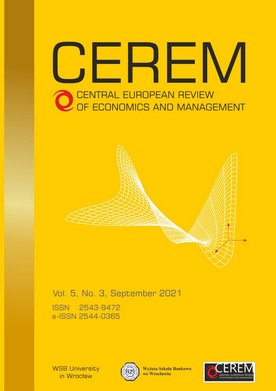Building certain knowledge based on the intention to consequence gap in uncertain surroundings
Building certain knowledge based on the intention to consequence gap in uncertain surroundings
Author(s): Tadeusz GospodarekSubject(s): Epistemology, Logic, Methodology and research technology, Economic development
Published by: Wyższa Szkoła Bankowa we Wrocławiu
Keywords: intention to consequence gap; knowledge; uncertainty; system approach; economic state; paradigm; research programme; game theory approach;
Summary/Abstract: Aim: Develop a methodological approach to reduce uncertainty of knowledge necessary for decision making in quick changing surroundings. Research methods: The research method is heuristic supported by the research programme in Lakatos’ sense, specially designed for these purposes based on the good paradigm of minimization the intentional consequential gap (ICG). Findings: The ICG is an interesting object related to the “is-ought problem” in Hume’s sense, representing the difference of resulting consequences and achievements of the intention after its realization. Any kind of minimization of the ICG may be recognized as a good paradigm in Kuhn’s sense suitable to build certain knowledge in the uncertain surroundings. So, it is the base of research programme in Lakatos’ sense which is a kind of filter for certain judgements about facts. It is crucial for decision making processes based on uncertain information and knowledge. In this paper a methodology of introduction the research programme based on the minimum ICG is presented. Currently this method of inferring may be used for building the certain knowledge about rationality of decisions regarding dealing with COVID-19. Value of the paper: The paper presents an original method of setting the criterion of rationality of any social projects and some axiological evaluations of, among other things, prognoses and strategies.
Journal: Central European Review of Economics and Management (CEREM)
- Issue Year: 5/2021
- Issue No: 3
- Page Range: 51-68
- Page Count: 18
- Language: English

